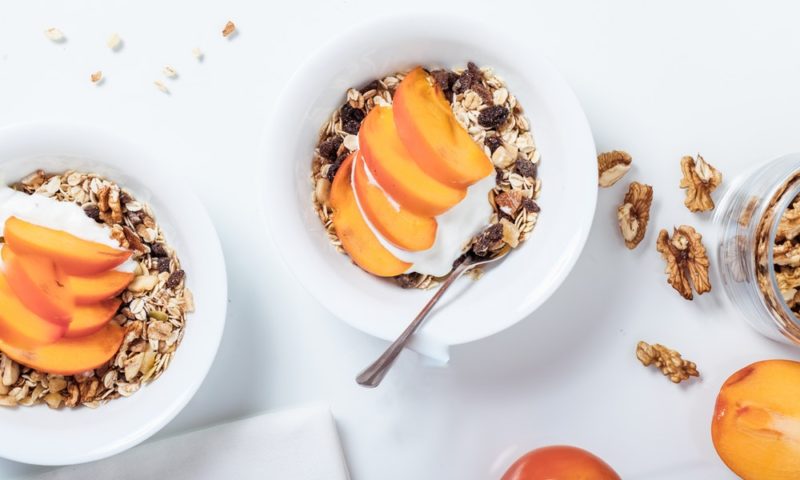Yogurt is a versatile and tasty snack that can be used in many different ways. Eat it on its own or add it to smoothies, veggie dips, dressings and Popsicles. However, many health experts caution against over-consumption of yogurt because many varieties are high in sugar, cholesterol and calories. Is it really a healthy snack for weight-loss, or is it something to be avoided?
The Building Blocks of Yogurt
What’s really in this superfood that gives it health benefits? Yogurt begins as fresh milk or cream that is often pasteurized. It then goes through a fermentation process where live bacteria cultures are added. The heat treatment that is used encourages other bacteria growth, too.
As a fermented dairy product, yogurt has a lot of positive effects on the body including:
- Promoting bone health that may protect against osteoarthritis
- Producing natural probiotics from active bacteria
- Benefiting digestion with help from healthy gut microbiota
- Bounties of calcium, vitamins B6 and B12, Potassium, Magnesium and more
- High levels of protein (in some kinds) that promote fullness
Factors to Watch Out for
Despite its health benefits, you should consume this “superfood” with caution. Many manufacturers add extra sugar, artificial ingredients and other additives. Yogurt already has natural sugars in it, so most of the time these additives aren’t necessary — especially when whole fruit has been added.
When buying packaged options, check the nutrition facts. Look for brands that have 12 g of sugar or less and have limited ingredients. These are the kinds you want to buy more of. Those which are sweetened with granola, candies or syrupy fruit are higher in sugar and calories.
Also be wary of products labeled with “covered in yogurt” or “yogurt flavored.” These include many cereals, granola bars and raisins. Rather than pure yogurt, they more than likely contain yogurt powder which has been heat treated and stripped of most bacteria.
Usually the safest store-bought yogurts are unflavored, low-fat Greek with lots of protein. Flavors like vanilla, cheesecake, Boston Creme Pie and Peach cobbler are likely to have more fat, sugar and calories. Many traditional fruity flavors are like this too. Plain low-fat yogurt will generally offer you a good starting point to use in dips, snacks, cooking and more. Just make sure you always read the nutrition label of your product before purchasing.






